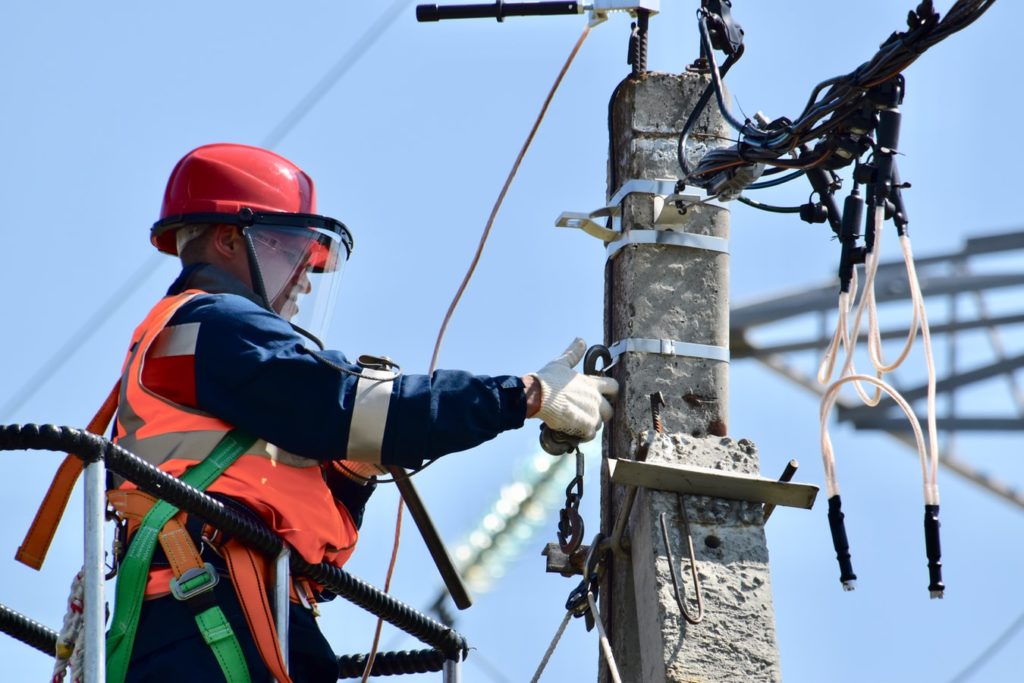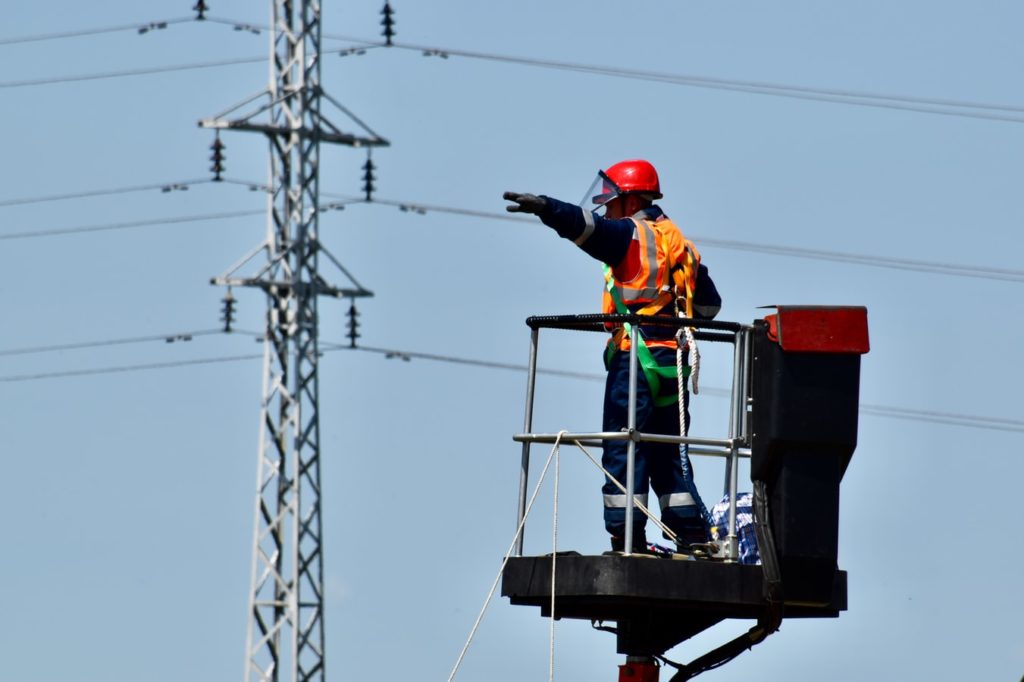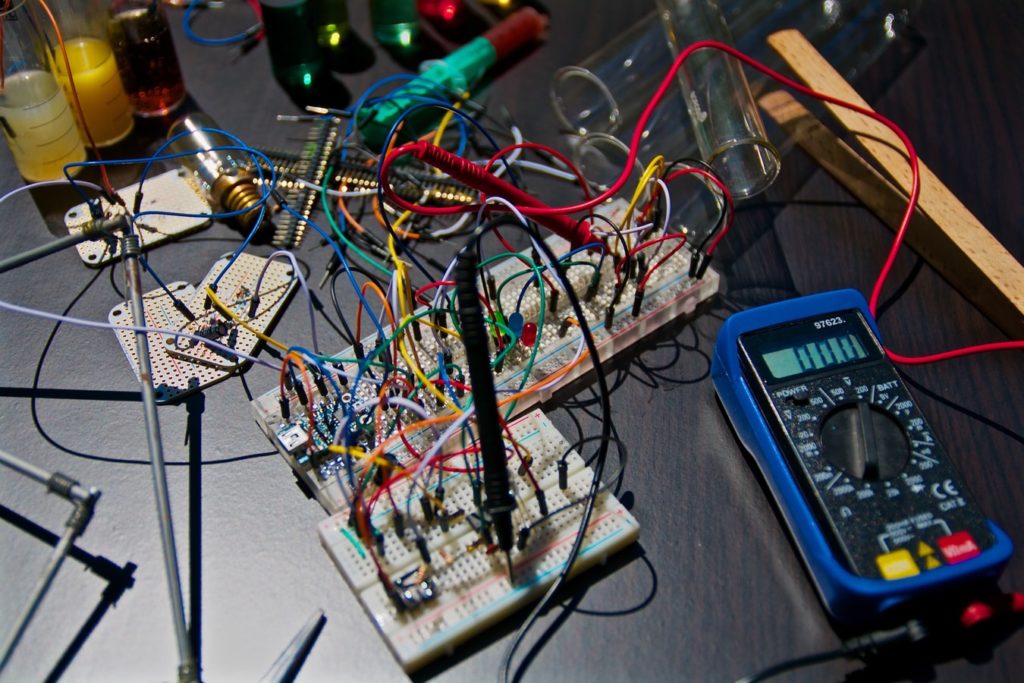Electricians play a vital role in the smooth operation of society. Without electricians to ensure the safe flow of electrical energy throughout residential and commercial buildings, we would have no lights, no way to use our computers or access the Internet because there would be no power for modems and routers. We’d freeze in the winter and roast in the summer without electrical systems to power our heating and cooling needs. We would be washing dishes by hand in cold water because there would be no power to run the hot-water tank. You get the idea of an electrician’s importance.

There are two main types of electrical work. The first involves wiring for new construction and the second covers repairs, maintenance and upgrades. We can further break down the different roles of electricians into these categories:
Residential Wiremen, who install the electrical wiring, outlets, switches, circuit breakers and other systems that go into consumers’ houses
Inside Wiremen, who tend to work on commercial projects, including office buildings, factories, arenas, airports, municipal buildings, schools, colleges and universities, hospitals and more.
Telecommunication Electricians, who install the cable and components necessary for phone, computer, and local area network communications.
Outside Linemen, who string up or bury the thick cables that extend from power plants to buildings and homes.

All of these positions require extensive training and adherence to the strictest safety protocols.
Because of the vital role electricity plays in our lives, keeping electrical systems running smoothly is also a time-sensitive job. Most of us have experienced a power outage, whether in the midst of a raging thunderstorm, tree branches falling on power lines, yanking them from their mooring, or some act of nature. If this happens in the summer, you’ll notice how quickly the inside of a house heats up when the air conditioning isn’t running. Or you’ll experience the frustration of walking into several different rooms during the outage and flipping light switches, only to be reminded the power is still out. Productivity grinds to a halt.
When something goes wrong, it can be very challenging to isolate the source of the problem, then determine what must be done to fix it. Electricians who can keep their corner of the world chugging along with power can look forward to a long and lucrative career.
Read on to discover what you need to do to become an electrician.
In this article you’ll learn:
- How much money you can make as an electrician
- The required training and certifications
- Professional groups to join
- Employment opportunities for electricians
- Finding clients
- Plus helpful tips
How much money can you make?
The average wage for electricians is $56,180 per year, according to the US Bureau of Labor Statistics. That works out to $29.26 per hour. The labor bureau reports that employment of electricians is projected to grow 10 percent through 2028, which is faster than the average for all US occupations.
Training and Certification
Electricians are required to be licensed in all 50 states. The very nature of the job, working with potentially lethal energy, demands highly trained professionals who understand and can follow safety protocols. While regulations vary by state, generally you’ll need to complete an approved training program with four years of hands-on experience working under a licensed electrician. This apprenticeship work is paid, with wages increasing as you gain experience.
A comprehensive directory of electrician licensing requirements for all 50 states is available here.

Generally, there are two broad categories of jobs requiring an electrician: installation and maintenance. Installation involves wiring the electrical systems in new construction, connecting circuit breakers, mounting power outlets and switches in walls, and hooking up the system to the external power source, which is the utility company’s line. Additional connections can involve solar panels and back-up generators, which are essential components at many organizations, especially hospitals.
Your training will cover both of these broad categories of electrical work so you’ll be prepared for any project.
Here’s an extensive list of electrician schools and training programs you can review.
What you’ll learn while training as an electrician:
- Using the correct tools, including knives, hacksaws, pliers, wire-strippers, and other hand tools.
- How to read blueprints and wiring schematics.
- How to wire and connect electrical systems for safety and reliability.
- Shaping pipes or tubing into specific angles with the use of a conduit bender. Pipes and tubing provide protection for the wiring running through them.
- Working with measuring devices, including ammeters (which measure electric currents in a circuit), ohmmeters (which measure electrical resistance), voltmeters (measures the amount of voltage that is passing between two points in a circuit), and oscilloscopes (an instrument that displays a graph showing how voltage rises and falls over a set amount of time).
- Safety protocols. Critical procedures for working with electricity so you avoid injury or worse.

Professional Groups to Join
National Electrical Contractors Association
NECA is one of the largest associations dedicated specifically to the electrical contracting industry. It weighs in heavily on standards, provides education, advocacy and business training to its members and provides events across the country for contractors to get together.
Independent Electrical Contractors
The IEC focuses on independent contractors and promotes the merit shop system. Its mission is to deliver the highest level of quality to its members to ensure the industry is served by professionals with the best possible quality and expertise.
Federated Electrical Contractors
The FEC is the first international association on our list, covering not only North America from coast to coast, but also a number of other countries. It works to create better quality in the industry through the international community.

American Lighting Association
Focusing on the lighting sector specifically, the ALA provides specialized support for its members, giving them information on new technologies, access to industry leaders and a wide range of services vital to their success in the sector.
American Society for Industrial Security
ASIS also serves a specialized sector of the electrical industry, specifically security. Its focus is delivering leadership and excellence in the security industry.
Employment
As a new electrician, you may not be ready to launch your own business. The up-front costs can be significant. Specialized tools and equipment will be needed, as well as a van or truck to transport them. You might need to rent office and storage space. There’s taxes to think about. Business insurance. Liability insurance. You may want to get tool insurance, too, for coverage in the event of lost or stolen tools. These expenses add up quickly.
While you’re saving to start your own electrician business, if that is your dream, you can find work with electrical companies in your area as well as construction companies and the maintenance departments of large organizations. Colleges and universities, for instance, will often have a team of electricians and other maintenance professionals working in-house due to the sheer size of their facilities.
Search online sites such as Indeed and ZipRecruiter to find local jobs. Send or (even better) hand-deliver your resume, copies of your certifications and license, plus references to companies hiring electricians in your area. Even if there are no immediate job openings, your information will be on file. Companies routinely check out resumes they already have before advertising a position.
Most importantly, always follow up with a phone call after mailing or dropping off your materials.
Finding Clients
Congratulations. You’re launching your own electrician business. Here are 7 proven tips for ramping up your marketing – fast – so you can concentrate on making money with your services.

Claim your Google Business listing
When you set up a free Google Business profile you create an online calling card that works on your behalf 24 hours a day, 7 days a week. Your business profile lists the name of your company, the services you offer, hours of operation, your phone number, a link to your company website and a Google map that shows the location of your business. Below that information is a space for customers to review your company. This is an opportunity to boost your word-of-mouth advertising. Always ask satisfied customers to leave a positive review on your Google Business page. The page is also automatically optimized to show up in search results. So when a customer goes online to find an electrician, the companies with the best reviews rise to the top of the search results.
Create a website
List all your services and complete contact information. Don’t put your prices on the website, as that’s a topic best discussed directly with the customer once you know the scope of an electrical project or repair. From time to time, you can add an article to the website about some aspect of electrical work that consumers would find useful. You can write these articles yourself or hire a freelance writer to prepare this content. A sample article might cover the importance of inspecting a home with older wiring, which can pose a fire hazard.
When building the website, whether you do it yourself or hire someone, be sure to include a simple contact form that people can fill out. This feature is sometimes called a work request and it’s for customers who are still in the researching/shopping around phase. Perhaps they’re thinking about building an addition on their home, which will require electrical wiring and circuit breakers. A work request form lets customers share what they have in mind so you can provide a thoughtful response. This works better than using email, because messages can get lost or shuffled into a spam folder. Customer requests for information entered on your website are delivered directly to you. This way, no fish slip through the net.
Set up a Facebook page
You’ve got to go where the potential customers are hanging out, and that means building a social media presence. Similar to a Google Business listing, your Facebook page contains all your basic contact information. You can post helpful tips and anything else that’s relevant to your electrician business. Best of all, it’s free.
Good to know:
At some point, virtually all small business owners will consider whether to pursue paid advertising and, if so, where and how much. In the electrician business you typically encounter two kinds of customers. One is shopping around for a professional to help with a remodeling project. The other has a fairly urgent repair that must be done, such as a wall outlet that has burned out.
Your website with its work request form has you covered for the first category of customer.
The second category of customers want to get a pro on the phone as quickly as possible.
For them, you can consider marketing services that provide call-only ad campaigns. Here’s how it works: in an emergency situation, most consumers are probably going to grab their smartphones and start searching for an electrician. Your call-only campaign displays your ad on the customer’s phone. One tap dials your number. Here is one example of a call-only ad service. Costs are based on pay-per-click, so unless someone clicks your ad to initiate a phone call, you pay nothing. This is as close to a sure-fire method for capturing your share of urgent-service customers that’s currently available.
If you enjoyed this article, check out some more great PocketSuite.io content that can help you grow your career as an electrician. Here’s a great place to start.PocketSuite has thousands of business owners who all started where you are right now. Our community is always happy to help you ramp up, grow your client base, and achieve your income goals, both within the PocketSuite app and as part of our exclusive Facebook Community Group. PocketSuite’s vision is for any professional to be able to work for themselves and make a great living. It starts here. It starts with you. It starts today. Let’s get started, download PocketSuite now! Feel free to reach out with any questions (we’d love to hear from you)! Text us @ (415) 841-2300.



